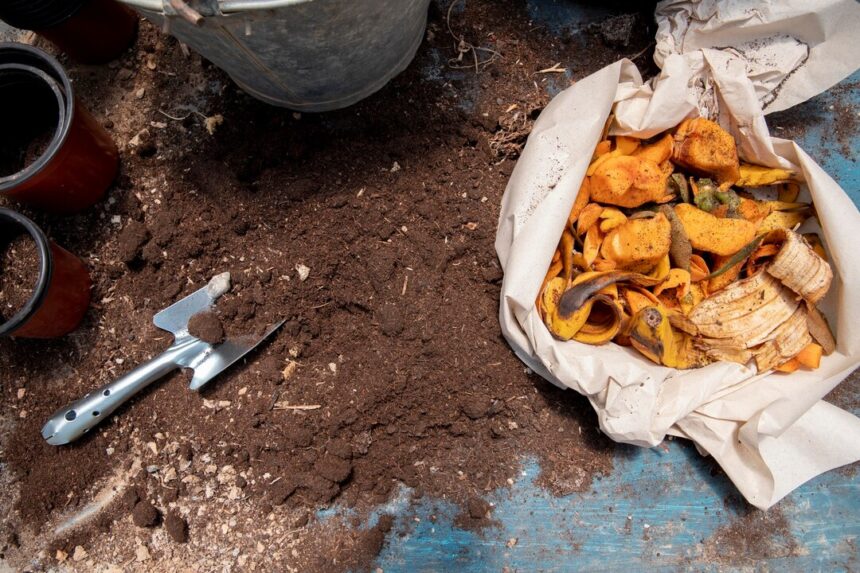Healthy soil is the foundation of sustainable agriculture, providing essential nutrients, water retention, and support for plant growth. Composting, the process of decomposing organic materials into nutrient-rich soil amendments, plays a crucial role in building and maintaining healthy soil ecosystems. From reducing waste to enhancing soil fertility, composting offers numerous benefits for farmers, gardeners, and the environment alike.
- Nutrient-Rich Soil Amendment:
Compost is a valuable soil amendment rich in organic matter, essential nutrients, and beneficial microorganisms. As organic materials, such as food scraps, yard waste, and agricultural residues, decompose, they release nutrients such as nitrogen, phosphorus, and potassium, which are essential for plant growth. By adding compost to soil, farmers and gardeners can replenish nutrient levels, improve soil structure, and enhance overall soil fertility. - Soil Structure and Texture:
Compost improves soil structure and texture by increasing soil aggregation and water retention while reducing compaction and erosion. Organic matter in compost acts as a binding agent, holding soil particles together in stable aggregates that improve soil aeration and drainage. This enhances root penetration, water infiltration, and nutrient uptake, promoting healthier plant growth and resilience to environmental stressors. - Water Retention and Drought Resilience:
Compost enhances soil water retention capacity, reducing the frequency of irrigation and improving drought resilience. Organic matter in compost acts like a sponge, absorbing and holding moisture in the soil, which is gradually released to plant roots as needed. This helps plants withstand periods of drought and reduces water runoff, conserving water resources and supporting sustainable water management practices. - Suppressing Plant Diseases and Pests:
Compost contains beneficial microorganisms, such as bacteria, fungi, and protozoa, that contribute to soil health and suppress plant diseases and pests. These microorganisms compete with harmful pathogens for resources, produce antimicrobial compounds, and stimulate plant defense mechanisms, reducing the incidence of soilborne diseases and pest infestations. By maintaining a healthy soil microbiome through composting, farmers can minimize the need for chemical pesticides and fungicides, promoting ecological balance and resilience in agroecosystems. - Carbon Sequestration and Climate Mitigation:
Composting plays a vital role in carbon sequestration and climate change mitigation by converting organic waste into stable organic matter that is stored in the soil. As organic materials decompose aerobically in compost piles, carbon dioxide (CO2) emissions are minimized, and carbon is stabilized in the form of humus, which persists in the soil for extended periods. This helps to mitigate greenhouse gas emissions, improve soil carbon stocks, and enhance soil fertility and resilience to climate change. - Waste Reduction and Resource Conservation:
Composting diverts organic waste from landfills, where it would otherwise decompose anaerobically and generate methane, a potent greenhouse gas. By recycling organic materials into compost, farmers, gardeners, and municipalities can reduce waste, conserve landfill space, and recover valuable nutrients and resources for soil enrichment. Composting also reduces the need for synthetic fertilizers and soil conditioners, minimizing reliance on finite resources and promoting circular economy principles.
Composting is a cornerstone of sustainable agriculture, offering numerous benefits for soil health, plant growth, and environmental stewardship. By recycling organic materials into nutrient-rich soil amendments, composting improves soil fertility, structure, and resilience while reducing waste, conserving resources, and mitigating climate change. Incorporating composting practices into agricultural and gardening systems is essential for building healthy soil ecosystems, promoting sustainable food production, and fostering resilience in the face of environmental challenges.
Join 'Farmers Mag' WhatsApp Channel
Get the latest Farming news and tips delivered straight to your WhatsApp
CLICK HERE TO JOIN






